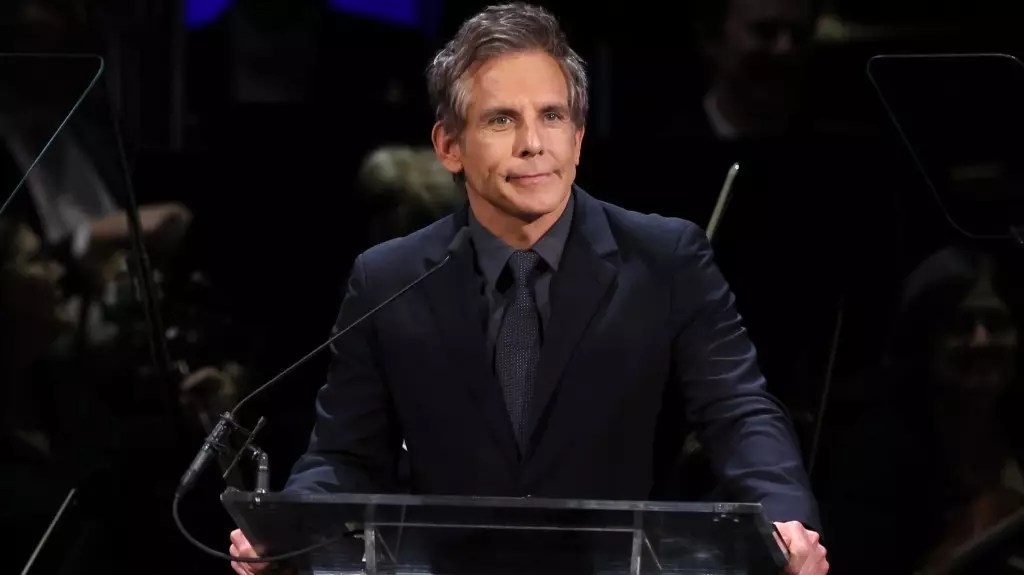In an era where the entertainment industry seems increasingly tumultuous, Ben Stiller’s remarks during a recent interview with the New York Times provide a keen perspective on the disconnection between creatives and the decision-makers in Hollywood. Previewing the second season of the acclaimed series *Severance*, Stiller draws parallels between the show’s narrative—a group of employees altered to dissect their professional identities from their personal selves—and the reality facing many in the film and television industry. His observations underscore a pervasive issue: the lack of control creatives have over their own work in an environment where decisions are often made out of sight and out of mind.
*Severance* introduces viewers to a hauntingly sterile corporate world, where characters like Mark (played by Adam Scott), Helly (Britt Lower), and others navigate a system that bifurcates their existence. As the story unfolds, Helly’s challenge to the status quo introduces questions that resonate with many who have felt marginalized or unheard in their respective fields. Stiller’s imagination of this disconnection speaks volumes; in a place where individuals can’t articulate their value or understand why critical decisions are made, the creative process becomes stifled.
Moreover, Stiller sheds light on an uncomfortable truth: many creatives are often left without clarity regarding decisions that impact their projects. This ambiguity reflects a broader issue pervasive in Hollywood, characterized by vague affirmations that, more often than not, translate to skepticism and delay rather than genuine support. Stiller notes that this isn’t just an anecdotal reality but a cliché that resonates deeply for many within the industry.
As the industry grapples with numerous challenges, including recent strikes and significant shifts post-COVID, the hurdles for bringing creative projects to fruition have intensified. Stiller articulates this sentiment, acknowledging that the production landscape has become fraught with uncertainty, financial constraints, and an overarching desire among decision-makers to play it safe. The pressure to maintain jobs and streamline choices has led to a significant risk-averse mindset, hindering bold storytelling and innovation.
This predicament is further exacerbated by global crises, such as the wildfires currently impacting Los Angeles, illuminating the fragile state of Hollywood. The landscape that once thrived on creative risk is now more concerned with stability, leaving many creatives struggling to find their footing.
Looking ahead to the second season of *Severance*, set to premiere on January 17, viewers will undoubtedly be curious about whether the series can continue to challenge these harsh realities. With the addition of a stellar cast including Gwendoline Christie and Merritt Wever, there is a palpable sense of anticipation surrounding how these themes of disconnection will evolve.
Ultimately, Stiller’s reflections remind us that the struggles highlighted in *Severance* mirror the experiences of many creatives today. The hope remains that as the series continues to unveil its narrative, it may spark conversations that inspire change within the industry—fostering an environment where creativity is valued, understood, and amplified.


Leave a Reply